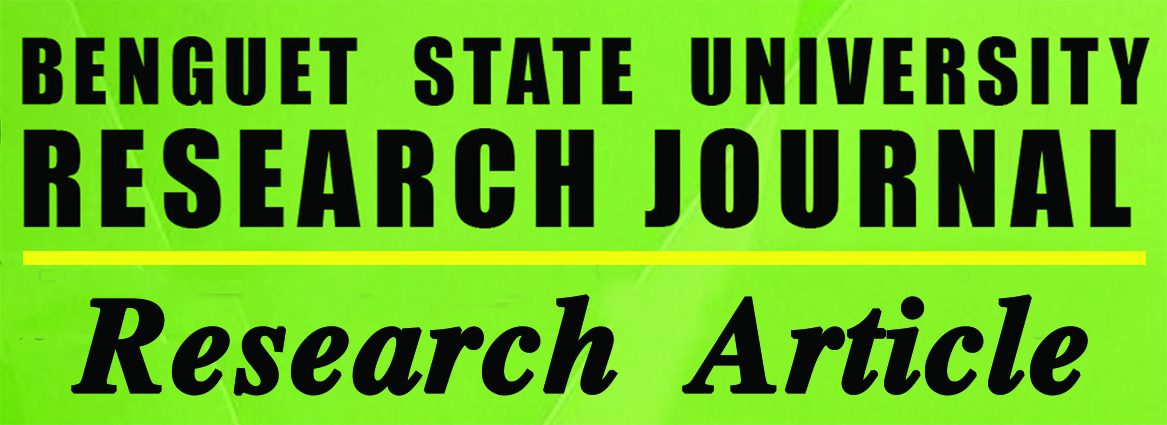Perceptions on Global Climate Change at Benguet State University
Main Article Content
Abstract
Climate change is a global issue. The academe plays an important role in disseminating information about climate change; one way is by conducting surveys. This study investigated the perceptions and level of awareness on global climate change of the different sectors in Benguet State University. Through cluster sampling, three hundred sixty (360) respondents were used comprising of four sectors – administrators, faculty, students, and non-teaching personnel. The different sectors in the university have similar perceptions on climate change - it is real and harmful; human activities that caused it are pollution due to industry; it concerns them and must be addressed by everyone including BSU; and actions can be done to address it whether at home or in the campus such as waste segregation and tree planting. On their level of awareness, the respondents are highly aware of climate change as a global issue; ways/devices/methods that help mitigate climate change impact such as more efficient cars/appliances and alternative energy sources; and on the difference that an individual and an institution can make on the projected impacts of climate change. Overall, there are no significant differences on the perceptions and level of awareness on climate change among the sectors. However, significant differences were noted according to the sectors’ level/amount of exposure, basis of beliefs, and access to information. There seems to be room for improvement with respect to what BSU is doing to address climate change as indicated by the low percentage of respondents who believe BSU is doing its part to address climate change. BSU as an academic institution has an important role to play in alleviating the effects of climate change within the community and the municipality. It should create more avenues for the involvement of all the sectors in the university in its campaign on climate change mitigation especially on its Eco-Waste Management Program and allow for better participation on the Information, Education, and Communication (IEC) arm of the said program.

